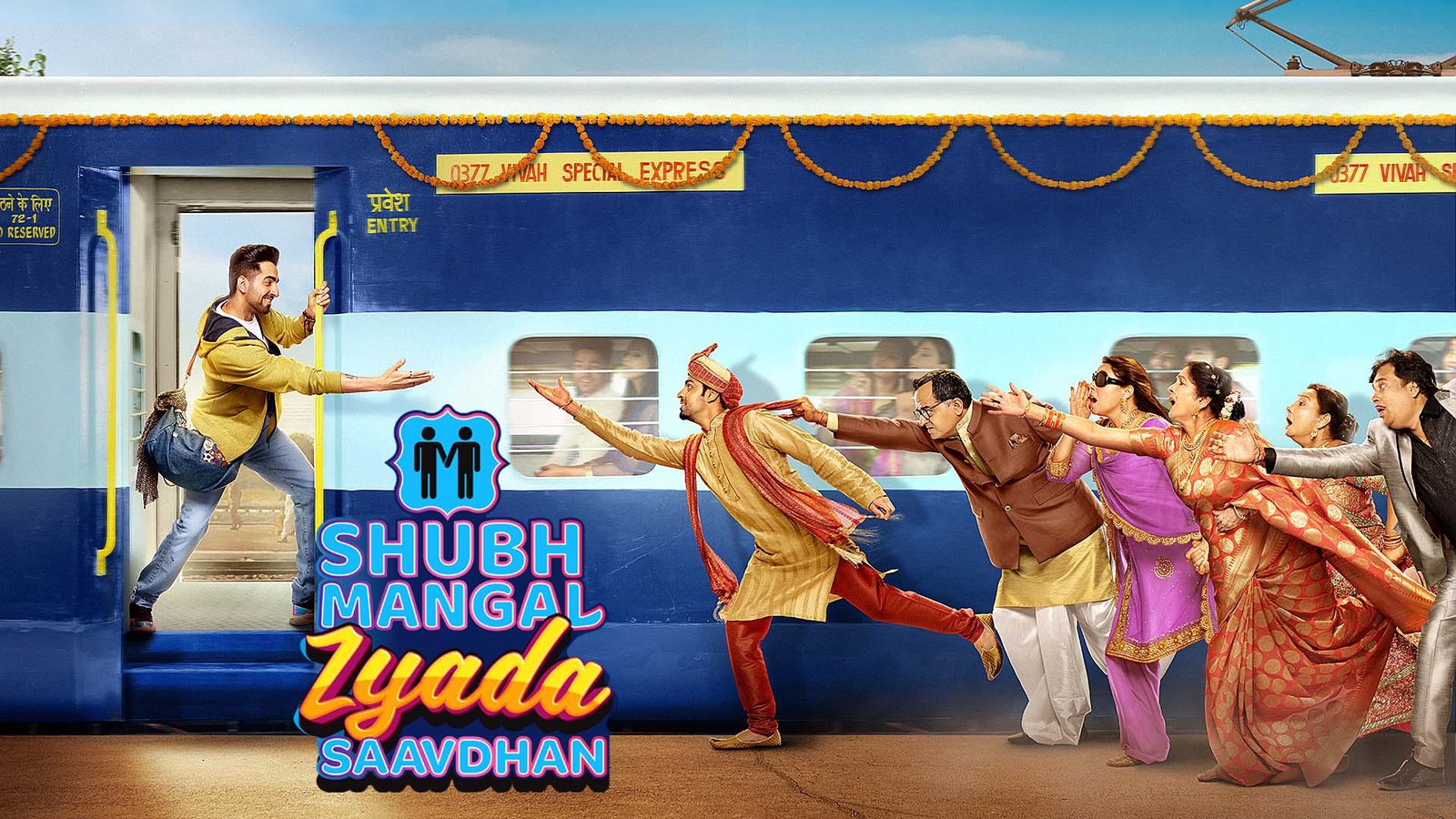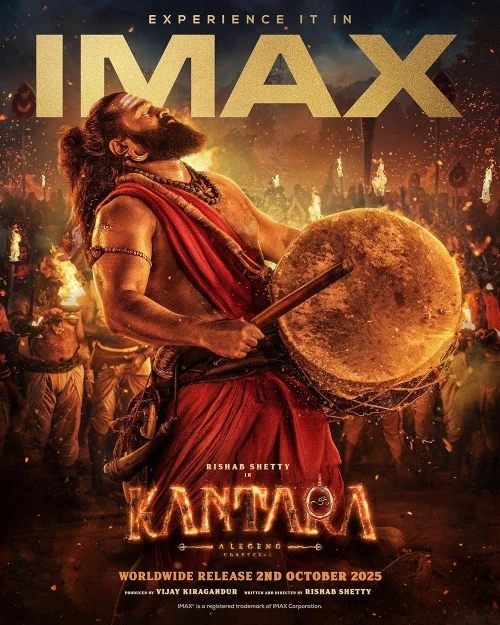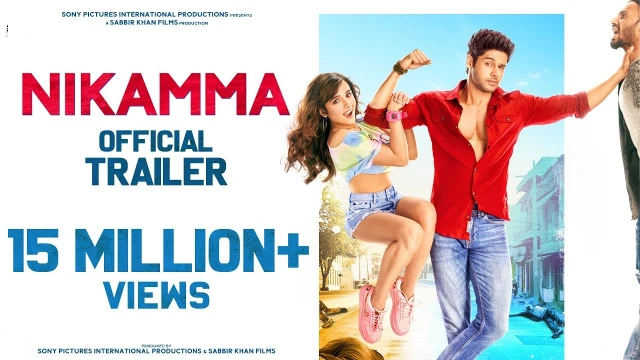
Shubh Mangal Zyada Saavdhan – A Revolutionary Celebration of Love in Indian Cinema ❤️🌈
Published on: Friday, July 5, 2025
🎬 Introduction: A Chapter in Shubh Mangal Zyada Saavdhan
Shubh Mangal Zyada Saavdhan (SMZS) represents a watershed moment for Indian cinema. As one of the first mainstream Bollywood films to center around a same-sex romance, this 2020 romantic comedy-drama shattered barriers while entertaining audiences. Directed by debutant Hitesh Kewalya and produced by Aanand L. Rai, the film serves as a spiritual successor to 2017’s Shubh Mangal Saavdhan, but with a radically different social message.
Set against the backdrop of small-town India, SMZS follows the turbulent love story between Kartik Singh (Ayushmann Khurrana) and Aman Tripathi (Jitendra Kumar). What makes this film extraordinary is its fearless approach to LGBTQ+ representation in an industry that has historically either ignored or caricatured queer relationships.
The timing of its release—just two years after India’s landmark 2018 Supreme Court ruling decriminalizing homosexuality—couldn’t have been more appropriate. SMZS doesn’t just tell a love story; it holds up a mirror to Indian society, challenging deep-rooted prejudices with humor, heart, and unflinching honesty.
🎭 The Stellar Cast:Shubh Mangal Zyada Saavdhan
Ayushmann Khurrana as Kartik Singh
Khurrana delivers arguably his most courageous performance yet as Kartik, a confident, out-and-proud gay man who refuses to apologize for his identity. His character breaks the mold of how LGBTQ+ individuals are typically portrayed in Indian media:
- Flamboyant yet nuanced, avoiding stereotypical mannerisms
- Passionate advocate for his relationship
- Serves as the emotional anchor of the film
Jitendra Kumar as Aman Tripathi
Kumar’s portrayal of the conflicted Aman provides the film’s emotional core:
- Brilliantly captures the internal struggle of a small-town boy torn between familial duty and personal truth
- His gradual transformation from fear to self-acceptance is profoundly moving
- Represents millions of closeted Indians facing similar dilemmas
The Supporting Ensemble
Neena Gupta and Gajraj Rao as Aman’s parents deliver powerhouse performances that elevate the film’s emotional stakes:
- Gupta’s Sunaina embodies the confusion and eventual tentative acceptance of many Indian mothers
- Rao’s Shankar represents generational prejudice, his eventual softening feeling earned rather than forced
Maanvi Gagroo as cousin Goggle provides much-needed comic relief while serving as an ally, demonstrating how younger generations are often more accepting.
🧠 Plot Deep Dive: A Revolutionary Love Story Shubh Mangal Zyada Saavdhan
Act 1: Love in the Open
The film opens with Kartik and Aman living freely in Delhi, their relationship established. The real conflict begins when Aman returns to his hometown for a cousin’s wedding, with Kartik unexpectedly following.
Act 2: Family Firestorm
The central drama unfolds when Aman’s family discovers their relationship:
- Shankar’s violent rejection mirrors real-life parental reactions
- The family’s desperate attempts to “cure” Aman (including a hilarious but poignant scene with a quack doctor) highlight societal ignorance
- The arranged marriage subplot with Kusum raises the stakes dramatically
Act 3: The Road to Acceptance
The climax features several groundbreaking moments:
- The railway station kiss scene—a first for mainstream Bollywood
- Aman’s public declaration of love during the wedding chaos
- The parents’ gradual, believable change of heart
What makes the resolution remarkable is its realism—the family doesn’t fully understand, but they begin trying, which many LGBTQ+ viewers found more authentic than sudden, complete acceptance.
🎥 Behind the Scenes: Direction of Shubh Mangal Zyada Saavdhan
Hitesh Kewalya’s Masterful Debut
The writer-director took several risks that paid off:
- Balancing heavy themes with genuinely funny comedy
- Creating three-dimensional queer characters rather than stereotypes
- Using traditional family settings to normalize same-sex relationships
Chandrashekhar Prajapati’s Cinematography
The visual storytelling enhances the narrative:
- Vibrant colors reflect the film’s hopeful tone
- Intimate close-ups during emotional moments create connection
- Authentic small-town locations ground the fantastical elements
Production Design
The Tripathi household feels lived-in and real, with details that speak volumes:
- Religious icons in the background contrasting with the progressive story
- The wedding set pieces bursting with traditional Indian splendor
🎶 The Soundtrack: Amplifying Emotions of Shubh Mangal Zyada Saavdhan
Track-by-Track Impact
- “Gabru”
- A bold, unapologetic anthem for Kartik’s character
- Modern beats fused with traditional instrumentation
- “Mere Liye Tum Kaafi Ho”
- The emotional centerpiece of the soundtrack
- Soft melodies underscore the couple’s tender moments
- “Arey Pyaar Kar Le”
- A celebratory remix that plays during pivotal scenes
- Embodies the film’s spirit of joyful rebellion
The background score subtly shifts tones to match scenes—playful during comedic moments, soaring during emotional breakthroughs.
🌈 Cultural Impact: Changing Hearts and Minds
Industry Revolution
SMZS paved the way for:
- More mainstream LGBTQ+ narratives in Bollywood
- Big stars taking on queer roles without fear
- Open discussions about representation in Indian media
Social Conversations
The film sparked nationwide dialogue about:
- Parental acceptance of LGBTQ+ children
- The difference between tolerance and true acceptance
- How media representation affects real-world attitudes
Personal Impact of Shubh Mangal Zyada Saavdhan
Countless viewers shared how the film:
- Gave them courage to come out to their families
- Helped conservative parents begin understanding LGBTQ+ issues
- Provided hope to queer youth in small towns
📊 By the Numbers: Reception and Legacy
Box Office Performance
- Budget: ₹35 crore
- Worldwide Gross: ₹86 crore
- Streaming Views: Top 5 most-watched Indian film on Amazon Prime for 3 months
Critical Reception
| Publication | Rating |
|---|---|
| Times of India | 4/5 |
| Film Companion | 3.5/5 |
| IMDb | 7.5/10 |
Awards and Nominations
- Won: Filmfare Award for Best Dialogue
- Nominated: Screen Award for Best Actor (Khurrana)
💬 Why Shubh Mangal Zyada Saavdhan Matters More Than Ever
Five years after its release, Shubh Mangal Zyada Saavdhan’s relevance has only grown:
- Representation Matters
Proved LGBTQ+ stories can be commercially successful in India - Art as Activism
Contributed to real social change by humanizing queer relationships - A Blueprint for the Future
Showed how to discuss serious issues through accessible entertainment
The film’s ultimate message—that love deserves celebration, not tolerance—continues to resonate as India’s LGBTQ+ community fights for full equality.
✅ The Final Verdict: to Shubh Mangal Zyada Saavdhan More Than Just Movie
Shubh Mangal Zyada Saavdhan transcends being merely a film; it’s a cultural milestone that redefined what Bollywood can achieve. By combining uproarious comedy with poignant social commentary, it opened doors for more inclusive storytelling while entertaining millions.
For viewers around the world, it remains a touching reminder that love, in all its forms, is worth fighting for—and that sometimes, the most revolutionary act is simply being true to yourself.

For more movie detailed review and additional information about everything of bollywood movie visit now our other review ⚠️🚨⚠️ Tanhaji Movie :A Complete Guide(2022)
Would you like me to focus on expanding any particular section further?



